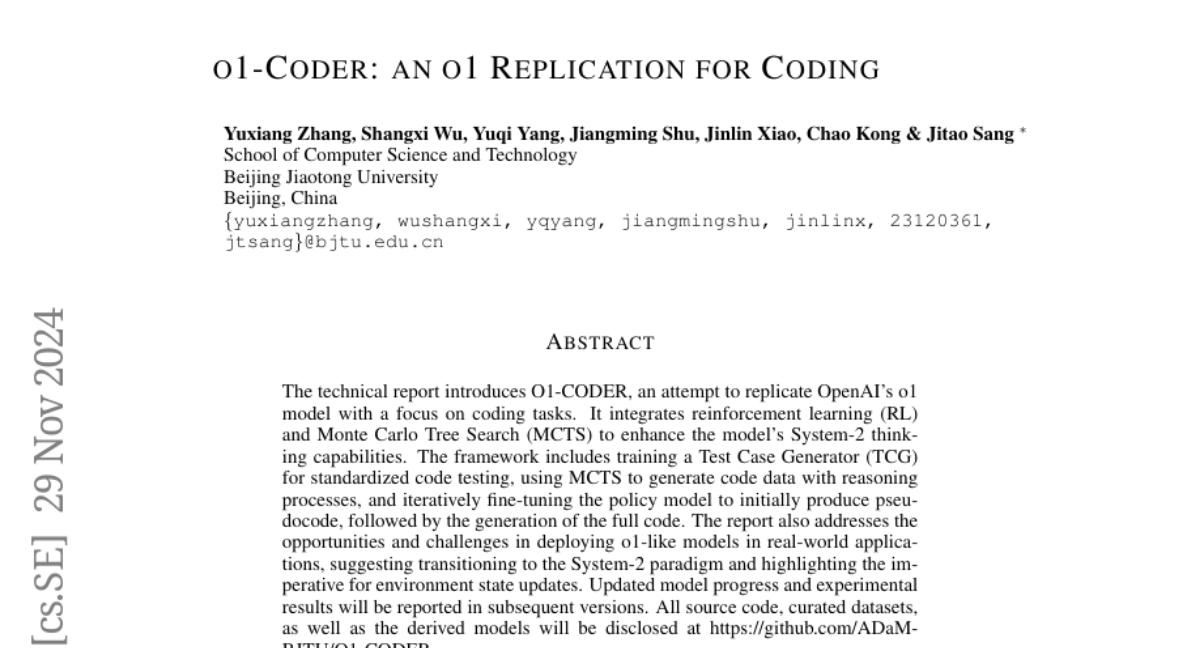o1-Coder: an o1 Replication for Coding
Yuxiang Zhang, Shangxi Wu, Yuqi Yang, Jiangming Shu, Jinlin Xiao, Chao Kong, Jitao Sang
2024-12-03

Summary
This paper introduces O1-CODER, a project aimed at replicating OpenAI's o1 model specifically for coding tasks using advanced techniques like reinforcement learning and Monte Carlo Tree Search.
What's the problem?
Training AI models to write and understand code can be challenging, especially when they need to think through complex problems. Existing models often require a lot of manual effort and fine-tuning, which can limit their effectiveness in real-world applications.
What's the solution?
O1-CODER tackles this problem by combining reinforcement learning (which helps the model learn from its mistakes) with Monte Carlo Tree Search (a method for making decisions based on simulations). The framework includes a Test Case Generator that creates standardized tests for the code, allowing the model to learn and improve its coding abilities. Initially, the model generates pseudocode (a simplified version of code) before moving on to full code generation. This approach allows for better reasoning and decision-making during coding tasks.
Why it matters?
This research is important because it enhances how AI models can be used for coding, making them more effective and easier to deploy in real-world scenarios. By improving the reasoning capabilities of these models, O1-CODER can help developers write better code faster, which is crucial in today's fast-paced tech environment. The findings and tools from this project will also be made available for others to use and build upon.
Abstract
The technical report introduces O1-CODER, an attempt to replicate OpenAI's o1 model with a focus on coding tasks. It integrates reinforcement learning (RL) and Monte Carlo Tree Search (MCTS) to enhance the model's System-2 thinking capabilities. The framework includes training a Test Case Generator (TCG) for standardized code testing, using MCTS to generate code data with reasoning processes, and iteratively fine-tuning the policy model to initially produce pseudocode, followed by the generation of the full code. The report also addresses the opportunities and challenges in deploying o1-like models in real-world applications, suggesting transitioning to the System-2 paradigm and highlighting the imperative for environment state updates. Updated model progress and experimental results will be reported in subsequent versions. All source code, curated datasets, as well as the derived models will be disclosed at https://github.com/ADaM-BJTU/O1-CODER .